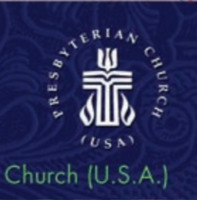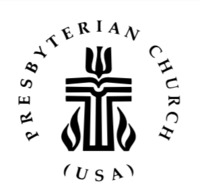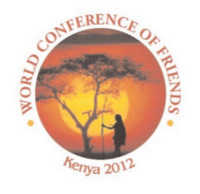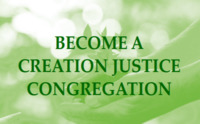Search
29 items
-
Earth Day statement from ELCA presiding bishop
The Reverend Elizabeth A. Eaton, Presiding Bishop of the Evangelical Lutheran Church in America (ELCA), issued an Earth Day statement on behalf of the ELCA. A salient excerpt from the statement is shown below:
"The effects of the warming climate are felt in nearly every corner of the globe. These include increased migration, food insecurity due to changing agricultural landscapes, national security issues and health problems. As bad as it is for all creation, the most vulnerable people around the world are suffering the most. Yet they have contributed the least and, as noted in the United Nation's 2030 Agenda for Sustainable Development,[iii] are ill equipped to adapt to or mitigate the effects of a changing climate to build resilient communities." -
Presbyterians and Climate Change
This article posted on Yale Climate Connections discusses grassroots efforts of Presbyterian organizations, and notes specific time frames of salient Presbyterian accomplishments with regard to climate change. The following excerpt provides a general overview of their goals and mission:
"Presbyterians are engaged in many activities to combat climate change, from Earth Forums to hunger programs addressing food and climate crises and protests against practices that encourage reliance on coal. Since 2010, the Presbyterian Church has given 80 congregations an Earth Care Congregation Certification for demonstrating a strong commitment to environmental care." -
PC(USA) Collaborative Agenda on Environmental Stewardship
Chief executives of the six churches of the Presbyterian Church (U.S.A.) provide their rationale for creating the Collaborative Agenda on Environmental Stewardship:
"Noting the deep concern about urgent environmental challenges expressed by many commissioners at the 221st General Assembly (2014), chief executives of the six agencies of the Presbyterian Church (U.S.A.) appointed a working group to develop a joint response. The group consisting of at least one staff member per agency—was asked to craft a positive statement of what each agency, and the agencies together, have done and plan to do regarding environmental stewardship. This document is designed to call attention to ongoing efforts by the PC(USA) to confront the underlying causes of climate change, and to resources available through the six agencies to congregations, mid councils, and other mission and ministry groups wishing to join in the effort. The working group, meeting together regularly over a period of nine months, has produced the following document— 'Collaborative Agenda on Environmental Stewardship.' It has been reviewed by each of the agency boards, which have each endorsed the document as a whole and recommended that the General Assembly also endorse it as a helpful resource to the whole denomination. This effort is particularly noteworthy as it is unusual for an item of business to come to the assembly from a collaboration of all six agencies." -
Blessed Tomorrow - Caring for Creation Today - Commitment to Act on Climate Change
The Presbyterian Church acknowledges that burning fossil fuels can cause irreparable damage to the Earth and to humans, with a disproportionate impact on the poor and vulnerable, and advocate instead for cleaner energy sources. They emphasize that care for creation is not a political, economic, or scientific issue, but rather a moral responsibility laid before us by God. For this reason, they are partnering with Blessed Tomorrow, to facilitate the creation of new tools and guides that will help to create a more sustainable future. -
Water
The Presbyterian Church (U.S.A.) Presbyterian Mission website provides some helpful resources on critical water issues, with a special focus on the problems that result from fracking. Included are additional resources to learn more about fracking. With regard to community specific issues, they provide suggestions to encourage residents to investigate, educate, and act to take appropriate measures to alleviate the problems. -
The Power to Change
The 218th General Assembly of the Presbyterian Church U.S.A. (PCUSA) has put forth this resolution on energy and climate change as a resource for both individuals and entire congregations. Topics at the forefront of the report include: global warming, eco-justice norms, energy guidelines, non-renewable energy sources, and alternative and renewable energy sources. The final section includes resources for education, action and advocacy. -
Report and Recommendations on Limited Water Resources and Takings
The 216th General Assembly of the Presbyterian Church U.S.A. put forth this report on recommendations regarding critical water issues. The first half discusses water with regard to ethical considerations and sustainability. The second part provides an action/study guide that is designed for individual use as well as educational purposes. -
Globalization and the Environment
This study paper by Dr. Robert L. Stivers focuses on various types of attitudes and perspectives regarding human interaction with the environment. He maintains that environmental degradation has multiple causes, of which globalization might only be one factor. Dr. Stivers offers that globalization is a contributor to the extent that affluent individuals from around the world have yet to curb their spending habits and attitudes with regard its negative impact on nature. -
We Are What We Eat
The 214th General Assembly (2002) Presbyterian Church (U.S.A.) approved the following report titled We Are What We Eat. This report focuses on how people can influence the agriculture revolution with regard to sustainability, stewardship compassion, and community. The final section provides suggestions for activities and studies that congregations can engage in with regard to food production/consumption. -
Hazardous Waste, Race, and the Environment
This statement was approved by the 207th General Assembly Presbyterian Church (U.S.A.), 1995. The predominant theme focuses on the impact that hazardous waste has on individuals who are suffering from poverty and minority groups. The final section provides suggestions for taking action. -
Restoring Creation for Ecology and Justice
This report was adopted by the 202nd General Assembly (1990) Presbyterian Church (U.S.A.). Their Committee on Social Witness Policy urges the assembly to adopt specified policies within the document. The report covers of multitude of critical environmental issues, with sound policy recommendations and actions that congregations can take to support the myriad of sustainability issues. -
A Shared Quaker Statement: Facing the Challenge of Climate Change
This statement calls for leaders to make sound decisions with regard to climate change, and for all people to cherish the Earth for future generations. The following introductory section highlights the sense of urgency:
"As Quakers, we understand anthropogenic climate change (climate change due to human activities) to be a symptom of a greater challenge: how to live sustainable and justly on this Earth.
We recognize that the current rise of greenhouse gas emissions is leading to an unprecedented rate of increase in global average surface temperature of extreme detriment to the Earth’s ecosystems and species, including human beings.
We recognize that catastrophic global climate change is not inevitable if we choose to act urgently." -
A Quaker Response to the Crisis of Climate Change
A Quaker Response to the Crisis of Climate Change discusses how climate change and consumer waste negatively impacts disadvantage populations the most. The first two paragraphs of the introduction are stated below:
"The crisis of global climate change represents a supreme test of humanity’s collective wisdom and courage. Our immoderate use of the Earth’s resources violates the entire biosphere, threatening the lives of millions of people and the habitats of thousands of species. Many of the poorest people are already suffering a changed climate; they are
asking us all to act.
How has humanity produced this crisis? Our faith response is that prevailing social values have obscured what it means to live authentically on this Earth. In rich European countries we consume more than we need within an economic system that divides us as a society; in much that we do, we cause harm to the planet and each other without enriching our lives." -
The Kabarak Call for Peace and Ecojustice
The Kabarak Call for Peace and Ecojustice, at the World Conference of Friends in 2012, maintains that we live in times in which the Earth can not replenish itself, so we must intervene where we can. In addition, we need to look out for our fellow humans, especially those who are less fortunate than us. The following paragraph provides the introduction to the text:
"In past times God’s Creation restored itself. Now humanity dominates, our growing population consuming more resources than nature can replace. We must change, we must become careful stewards of all life. Earthcare unites traditional Quaker testimonies: peace, equality, simplicity, love, integrity, and justice. Jesus said, 'As you have done unto the least… you have done unto me'. We are called to work for the peaceable Kingdom of God on the whole earth, in right sharing with all peoples. However few our numbers, we are called to be the salt that flavours and preserves, to be a light in the darkness of greed and destruction."
-
Profile: John Hill
John Hill is a member of the General Board of Church and Society (GBSC) for The United Methodist Church. His work there includes overseeing their advocacy and organizing department. He also directs the economic and environmental justice program work. Having previously worked as a lobbyist in the private sector, John soon realized the difficulty of integrating faith into his occupation. Since joining The United Methodist Church in 2002, John enjoys the opportunities he has to work with individuals in ways that allow them to integrate faith more fully into their daily lives.
One example of John's passion projects, building a green roof for the United Methodist agency, can be found here https://www.umc.org/en/content/green-roof-reflects-united-methodist-care-for-earth. John discusses how this type of project is a way to show the organization's faith in action, serving as environmental stewards that can be seen by many throughout the D.C. area. In addition, their administration has switched to 100 percent renewable energy and installed water bottle fillers to reduce waste. -
Profile: Shantha Ready Alonso
Shantha Ready Alonso serves as Executive Director of Creation Justice Ministries. Since the start of her appointment in 2015, Shantha has prioritized racial-ethnic equity in support of protecting, restoring, and more rightly sharing God's creation. Shantha's work has appeared in The Hill, the Colorado Gazette, The Day, Sojourners, Patheos, and Justice Unbound. She has also been interviewed by NPR, Religion News Service, U.S. Catholic, and various podcasts.
Shantha has taken the initiative to arranged numerous stakeholder meetings between people of faith and policymakers. She has testified before the US Environmental Protection Agency, the US Department of Interior, and the White House Office of Management and Budget. Shantha is listed among the 2018 “Grist 50 Fixers," an annual list of emerging leaders from across the U.S. who are working on fresh, real-world solutions to our world’s biggest challenges. -
Engaged Organizations: Web of Creation
The Web of Creation website discuss their organization aim and services that they provide:
"The Web of Creation was established to foster the movement for personal and social transformation to a just and sustainable world from religious perspectives. To that end, the information at this site will:
-Connect you with ideas, resources and strategies for doing eco-justice
-Inform, inspire, encourage, educate you about eco-justice
-Support you in your efforts to live, work and pray in ways that promote eco-justice
The Web of Creation has also been developed to provide information and connections for theology students interested in environmental ministry." -
Episcopal Diocese of Ohio: Bellwether Farm
Bellwether farm is a new camp and education center of the Episcopal Diocese of Ohio. It is meant to provide leadership development and teachings through sustainable farming, food production, and care of the environment. It is located in Wakeman Ohio, with the goals of informing, inspiring, and empowering leaders for a sustainable future. The buildings are models of green technology featuring passive buildings, renewable energy, and water reclamation systems. -
United Church of Christ – Environmental Ministries
The United Church of Christ has taken an active role in environmental stewardship. They have made multiple statements about various aspects of the environment. This link provided by Environmental Ministries discusses various critical environmental justice issues. If you are looking for ideas on how to live more Eco-friendly in your own life, or simply searching for a great set of resources, check them out! -
Engaged Organizations: General Board of Global Ministries
General Board of Global Ministries discuss their vision and span of their work on their website. Their areas of impact run the gamut for a multitude of environmental and social justice issues:
"Connection is at the core of our work. Global Ministries connects The United Methodist Church, its people and congregations to partner with others engaged in God’s global work, which takes place in a variety of settings, countries and cultures.
Global Ministries works through missionaries and partners in more than 60 countries around the world. " -
Anglican Views on Climate Change - a report compiled by the Climate Institute of Australia
Interfaith Center for Sustainable Development posted a report, compiled by the Climate Institute of Australia, on Anglican views of climate change. A predominant them includes the toll that greed and selfishness takes on God's creation. It focuses on specific actions that individuals can take to reduce energy usage and foster environmental justice for the world population. -
America Baptist Churches USA (ABCUSA) Creation Justice Congregations Bulletin
America Baptist Churches USA (ABCUSA) has created a bulletin insert that discusses how congregations can earn certificates of achievement for implementing eco-justice measures. Further details are discussed below:
"Creation Justice Congregations is an environmental education, stewardship, and justice program sponsored by the Creation Justice Network of the American Baptist Churches USA. Through this program your congregation can earn certificates of achievement for implementing eco-justice measures in your building, within your congregations, and in your ministries of outreach and justice.
Creation Justice Congregations has three stages, each with a checklist of suggested education, worship, and other action items that can help bring Baptist churches into the wider movement for peace, justice, and reconciliation with all of God's creation. " -
Our Moral Opportunity on Climate Change
On November 3, 2017, the New York Times posted an article by Justin Welby, the archbishop of Canterbury and primate of the Church of England, discussing some of the devastating weather-related disasters that had occurred at that time and how climate change factored into the tragedies. Below is one section of the article, discussing responses of various faith groups with regard to these events:
"Indeed, even amid the hurricane-caused devastation and despair of recent weeks, I have seen seeds of hope. Different expressions of the Christian faith are freshly united around the need to care for our common home. The Catholic, Anglican and Orthodox Churches just came together with the World Council of Churches to celebrate a month long Season of Creation. During this season, people all around the globe prayed and acted to address climate change and to protect the earth." -
Episcopalians Confronting Climate Change
This article discusses American Episcopalians' concern over climate change and the impact with regard to those facing poverty. The introduction to the article is stated below:
"In September 2011, the House of Bishops in the Episcopal Church, attending a meeting in Quito, Ecuador, sent a pastoral letter to Episcopal clergy worldwide expressing 'mounting urgency' to address climate change within church membership. The letter argued the critical need for Christians to care for all of God’s creation and urged that justice be sought for the poor, who it said will suffer most from climate change." -
The Hope We Share: A Vision For Copenhagen
The Anglican Communion Environmental Network addressed the United Nations Framework Convention on Climate Change (UNFCCC)
Conference Of Parties (COP) Meetings, the Fifteenth Session, held in Copenhagen, Denmark in December 2009. They lament the consequences of environmental human footprints, some of which include the lack of drinkable water in various parts of the world, the increased difficulty to grow crops due to the water shortages, rampant consumerism, and subsidies for fossil fuels.

























